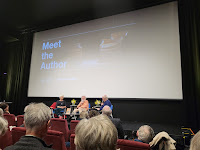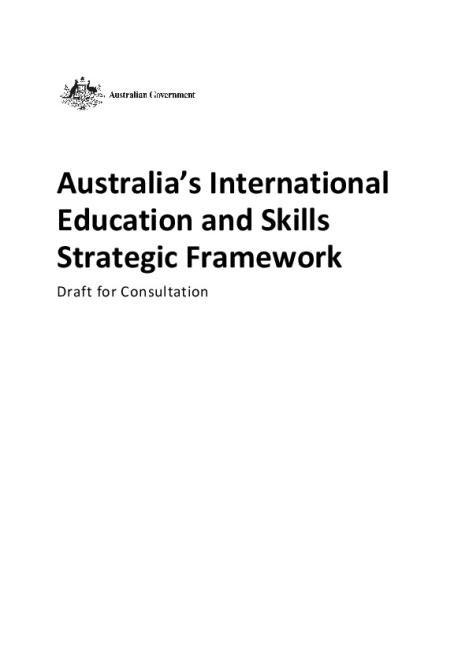The Australian Department of Education has released a 41 page draft "
Australia’s InternationalEducation and SkillsStrategic Framework" for consultation (10 May 2024). The report has an odd mix of conflicting objectives, based on false premises. There is nothing wrong with the Australian Government setting targets to meet national priorities. This could be to maximize student fees, meet national skills needs, or to aid regional development. However, measures to do any one of these will work against the other two.
The report makes the claim several times that integrity issues are due to "unmanaged growth" (pages 5, & 15), rather than the obvious failure of government regulation. Also it blames international students for a housing shortage, rather than successive Australian governments failure to invest in public housing. However, the major problem with the report is that it doesn't seriously address the need to offer online education, and broaden the countries Australia draws students from. I suggest the way to broaden the market is with online education (Worthington, 2018). Also the report does not mention the threat, and opportunity, of Artificial Intelligence, at all. This is surprising, as it is not possible to attend an education forum at present, without AI dominating the discussion (I will be talking about it
at EduTech Asia 2024).
The report envisages international students providing a trained workforce for Australian industry, as well as assisting economic development of the countries the students are from, and also strengthening ties with those countries. In the past these separate and conflicting objectives were supported by individual, separately funded and administered programs. This report does not acknowledge, let alone attempt to resolve, these competing mutually exclusive goals for international education.
The report highlights some of the measures previously introduced to address flaws in the system. However, it fails to acknowledge how the ad-hoc nature of the measures, where the Australian government went from under to over regulation, harmed students, and the reputation of the Australian high education system. As an example, in 2023, the Australian Government restricted students ability to switch education providers. This was done to address a practice where students would switch providers after arriving, to facilitate work, rather than study. Had effective measures been in place, this ad-hoc measure would not have been needed.
Previously the Australian Government introduced domestic student loans for Vocational Education and Training. This was followed by scamming of the system by unscrupulous providers. The Government seems to have not anticipated this, and took years to respond, resulting in hardship for students, and a loss of a large amount of public funds. It is surprising that government would repeat this experience, being caught unawares, repeatedly, by sharp practices by international training providers, and student agents. Assuming that organisations which can obtain large amounts of government money will act honestly, being surprised when they don't, then overreacting with restrictive regulations, doesn't make for a well ordered international education system.
To add to the conflicting aims in the report, it attempts to promote regional Australia, through international education (page 21). As the report notes international students are concentrated in metropolitan areas, particularly capital cities. However, this is also where domestic students prefer to study. Regional Australia might provide students students with "unique experiences", but these are ones they, domestic and international, don't want to have. Forcing students to study at regional campuses would be good for the local economy, but what incentives would be required for students to study where they do not want to? The report suggests promotion of sustainable energy jobs in regional Australia, but that is likely to have regional appeal.
An option not mentioned is to use regional campuses as part of the growth of non-capital Australian cities. As an example, the NSW government is considering high speed rail options from Sydney to Newcastle. Newcastle already offers an attractive location for students, with its beaches, and fast access to Sydney would make this a much better offering. One option would be a battery powered high speed rail line from Newcastle to Canberra, via Sydney and Woolongong, with trains recharging via overheard catenary while decelerating and accelerating for each station.
References
T. Worthington, "
Blended Learning for the Indo-Pacific," 2018 IEEE International Conference on Teaching, Assessment, and Learning for Engineering (TALE), Wollongong, Australia, 2018, pp. 861-865. doi: 10.1109/TALE.2018.8615183 URL https://doi.org/10.1109/TALE.2018.8615183











